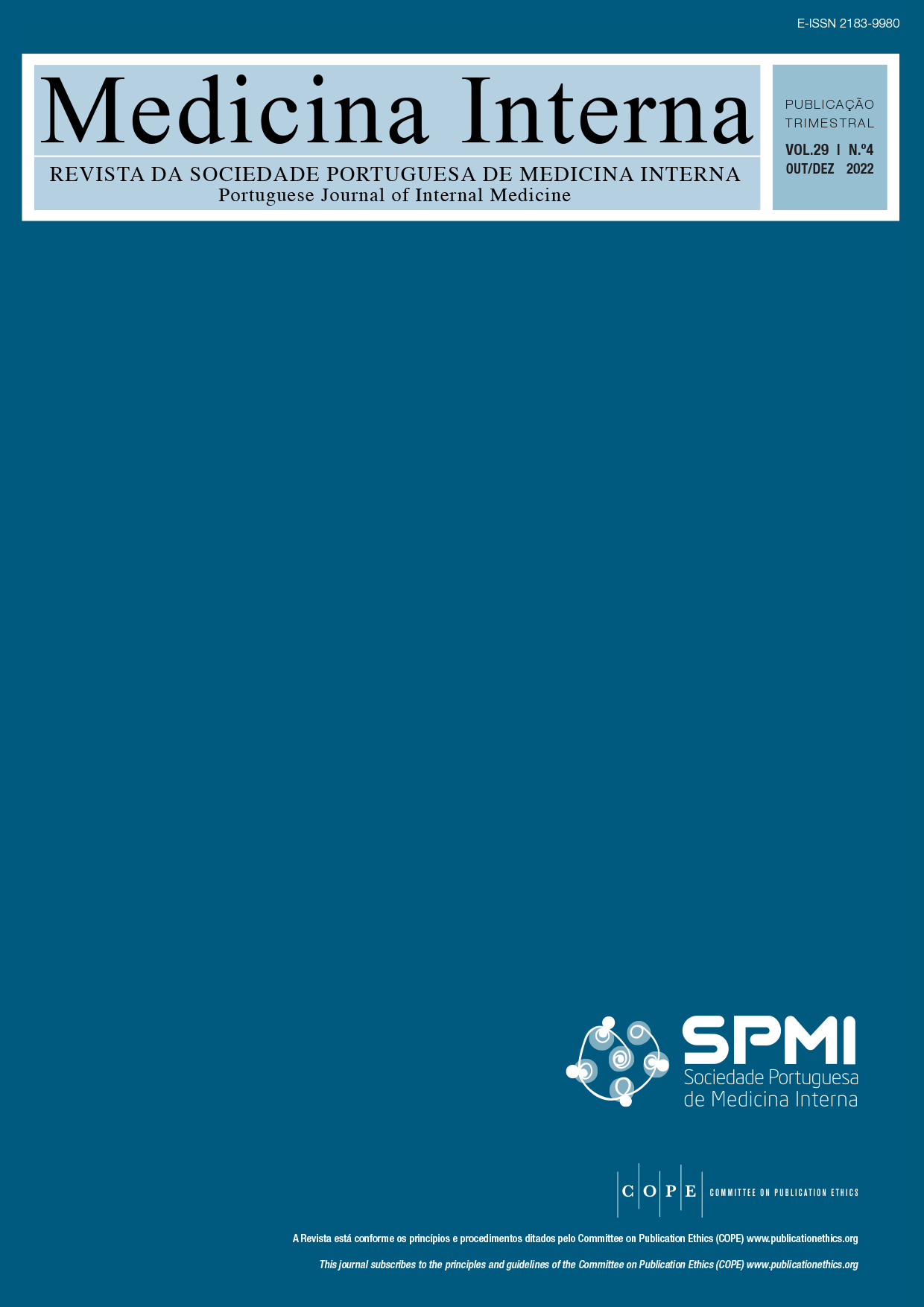The Role of Simulation in Emergency Teams Training
DOI:
https://doi.org/10.24950/rspmi.1229Keywords:
Emergency Medicine, Patient Care Team, Simulation TrainingAbstract
The acquisition of clinical skills mostly depends on contact with practice, which is possible through health simulation. This is a way to train and improve skills in a controlled environment, without compromising user safety, improving the non-technical aspect, and testing protocols.
Simulation can take place in centers created for this purpose or in situ, in the real work environment, providing opportunities for learning, problem identification and teamwork management. It is the gold standard in the training of health teams.
The authors describe the simulation activity of the Internal Medicine service in Madeira, with 28 simulation courses held at the Centro de Simulação Clínica da Madeira, reflecting levels of overall satisfaction among trainees above 90%, with an impact on personal and professional development of the health teams.
Downloads
References
Crisp N, Berwick D, Kickbusch I, Bos W, Antunes JL, Barros PP, et al. Um futuro para a saúde, Lisboa: Fundação Calouste Gulbenkian; 2014.
Carlin E, Dubash R, Ho J, Bertenshaw C. Simulation in emergency medicine. Emerg Med Australas. 2021;33:357-61. doi: 10.1111/1742- 6723.13756.
Oman SP, Magdi Y, Simon LV. Past Present and Future of Simulation in Internal Medicine. Treasure Island: StatPearls Publishing; 2022.
Beyer-Berjot L, Patel V, Sirimanna P, Hashimoto DA, Berdah S, Darzi A, Aggarwal R. Implementation of a Surgical Simulation Care Pathway Approach to Training in Emergency Abdominal Surgery. World J Surg. 2020;44:696-703. doi: 10.1007/s00268-019-05242-1.
Weile J, Nebsbjerg MA, Ovesen SH, Paltved C, Ingeman ML. Simulation- -based team training in time-critical clinical presentations in emergency medicine and critical care: a review of the literature. Adv Simul. 2021;6:3. doi: 10.1186/s41077-021-00154-4.
Cook DA, Hatala R, Brydges R, Zendejas B, Szostek JH, Wang AT et al. Technology-enhanced simulation for health professions education:a systematic review and meta-analysis. JAMA. 2011; 306: 978–88. doi: 10.1001/ jama.2011.1234.
Schertzer K, Patti L. In Situ Debriefing in Medical Simulation.StatPearls. Treasure Island: StatPearls Publishing; 2022.
Freund D, Andersen PO, Syane C, Meyhoff CS, SørensenJL. Unannounced vs announced in situ simulation of emergency teams: Feasibility and staff perception of stress and learning. Acta Anaesthesiol Scand. 2019;63:684- 92. doi: 10.1111/aas.13321.
Brazão M L, Nóbrega S, Correia JP, Silva AS, Santos D, Monteiro MH. Simulação Clínica: Uma Forma de Inovar em Saúde. Med Interna. 2015;22:146-55. doi: 10.24950/rspmi.944.
Rudolph JW, Simon R, Dufresne RL, Raemer DB. There’s No Such Thing as “Nonjudgmental” debriefing: A Theory and Method for de-briefing with Good Judgment. Simul Healthc. 2006;1:49-55. doi: 10.1097/01266021- 200600110-00006.
Downloads
Published
How to Cite
Issue
Section
License

This work is licensed under a Creative Commons Attribution 4.0 International License.
Copyright (c) 2023 Medicina Interna






